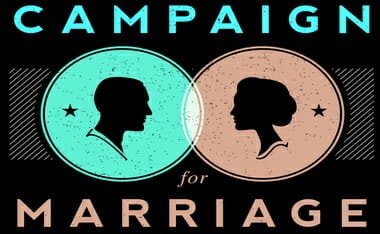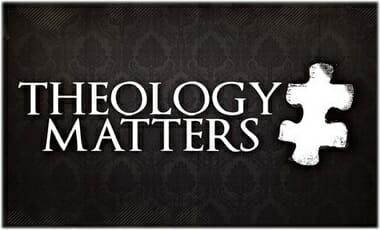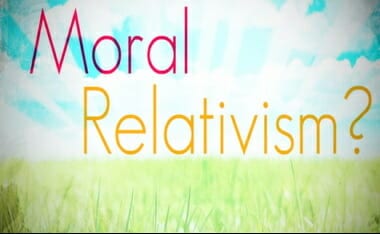This is the first of a couple posts/Excerpts that will highlight “Just War Theory,” Pacifism, and the like. By far this is one of the best resources that I will start this series of excerpts [and later some thoughts] with. It should sit on every serious Christians shelf. Enjoy:
Pacifism
- Wayne Grudem, Politics According to the Bible (Grand Rapids, MI: Zondervan, 2010), 36-44, 388-394.
[p.36>]
C. ALL GOVERNMENT IS EVIL AND DEMONIC
According to this third view, all use of government power is deeply infected by evil, demonic forces. The realm of government power is the realm of Satan and his forces, and therefore all governmental use of “power over” someone is “worldly” and is not the way of life that Jesus taught.
Those who hold this view also usually favor military pacifism. They argue that since Jesus told us to turn the other cheek (Matt. 5:39), the best way to resolve disputes—even among nations—is never to use military force, but always to negotiate and build friendships and act in a Christlike way, showing love to other nations.
1. Support from Luke 4:6
This viewpoint has been strongly promoted by Minnesota pastor Greg Boyd in his influential book The Myth of a Christian Nation (Grand Rapids: Zondervan, 2005). Boyd’s views in this book have had a large impact in the United States, especially on younger evangelical voters.
Boyd says that all civil government is “demonic” (p. 21). Boyd’s primary evidence is Satan’s statement to Jesus in Luke 4:
And the devil took him up and showed him all the kingdoms of the world in a moment of time, and said to him, “To you I will give all this authority and their glory, for it has been delivered to me, and I give it to whom I will. If you, then, will worship me, it will all be yours” (Luke 4:5-7).
Boyd emphasizes Satan’s claim that all the authority of all the kingdoms of the world “has been delivered to me” and then says that Jesus “doesn’t dispute the Devil’s claim [p.37>] to own them. Apparently, the authority of all the kingdoms of the world has been given to Satan.”29
Boyd goes on to say, “Functionally, Satan is the acting CEO of all earthly governments.”30 This is indeed a thoroughgoing claim!
2. The mistake of depending on Luke 4:6
Greg Boyd is clearly wrong at this point. Jesus tells us how to evaluate Satan’s claims, for he says that Satan “has nothing to do with the truth” because
“there is no truth in him. When he lies, he speaks out of his own character, for he is a liar and the father of lies” (John 8:44).
Jesus didn’t need to respond to every false word Satan said, for his purpose was to resist the temptation itself, and this he did with the decisive words, “It is written, ‘You shall worship the Lord your God, and him only shall you serve ‘” (Luke 4:8).
In evaluating Boyd’s claim that “the authority of all the kingdoms of the world has been given to Satan,” we have a choice: Do we believe Satan’s words that he has the authority of all earthly kingdoms, or do we believe Jesus’ words that Satan is a liar and the father of lies? The answer is easy: Satan wanted Jesus to believe a lie, and he wants us to believe that same lie, that he is the ruler of earthly governments.31
By contrast, there are some very specific verses in the Bible that tell us how we should think of civil governments. These verses do not agree with Satan’s claim in Luke 4:6 or with Boyd’s claim about Satan’s authority over all earthly governments. Rather, these verses where God (not Satan) is speaking portray civil government as a gift from God, something that is subject to God’s rule (not Satan) and used by God for his purposes. Here are some of those passages:
“The Most High rules the kingdom of men and gives it to whom he will and sets over it the lowliest of men” (Dan. 4:17).
Let every person be subject to the governing authorities. For there is no authority except from God, and those that exist have been instituted by God. Therefore whoever resists the authorities resists what God has appointed, and those who resist will incur judgment. For rulers are not a terror to good conduct, but to bad. Would you have no fear of the one who is in authority? Then do what is good, and you will receive his approval, for he is God’s servant for your good. But if you do wrong, be afraid, for he does not bear the sword in vain. For he is the servant of God, an avenger who carries out God’s wrath on the wrongdoer. Therefore one must be in subjection, not only to avoid God’s wrath but also for the sake of conscience. For the same reason you also pay taxes, for the authorities are the ministers of God, attending to this very thing (Rom. 13:1-6).
[p.38>] Be subject for the Lord’s sake to every human institution, whether it be to the emperor as supreme, or to governors as sent by him to punish those who do evil and to praise those who do good (1 Peter 2:13-14).
At this point it is interesting that both Paul (in Romans) and Peter see civil government as doing the opposite of what Satan does: civil governments are established by God “to punish those who do evil,” but Satan encourages those who do evil! Civil governments are established by God “to praise those who do good,” but Satan discourages and attacks those who do good. In addition, it would not make sense for Peter to say, “Be subject for the Lord’s sake to every institution in which Satan is the CEO.” Peter would not want Christian citizens to be subject to Satan’s control and direction.
The point is that Satan wants us to believe that all civil government is under his control, but that is not taught anywhere in the Bible. (Of course, Satan can influence some individuals in government, but he is not in control.) The only verse in the whole Bible that says Satan has authority over all governments is spoken by the father of lies, and we should not believe it. Greg Boyd is simply wrong in his defense of the view that “all government is demonic.”
3. But where did Jesus ever teach us to use force?
In supporting his position, Boyd often appeals to the teachings of Jesus rather than the teachings of the whole Bible. For example, “Jesus didn’t come to give us the Christian answer to the world’s many socio-political quandaries”32 Boyd also says that the “just war” theory is “something that Christ never taught or hinted at”33 (quoting George Zabelka with approval).
But this form of argument fails to recognize that the whole Bible was given to us by God. We have no right to restrict our views to the teachings of Jesus in the four Gospels. If the main teaching on civil government in the Bible is found in Genesis 9:5-6, and in the historical narratives and laws in Exodus to Deuteronomy and Judges to 2 Chronicles, and in Romans 13, and in 1 Peter 2:13-14, then getting Christians to neglect those passages gets them to misunderstand what the Bible says about civil government. That is exactly what-Boyd is doing when he asks, “Where did Jesus ever act or talk like this?”34 The answer is that the whole Bible comes with the authority of God and the authority of Jesus Christ, and our position on government should be based on the teaching of the whole Bible. (Also, Jesus did seem to authorize the use of a sword for self-defense and protection against robbers in Luke 22:36-38; see discussion below on pp. 201-3.)
4. Support from Homer’s Iliad and Odyssey
One other argument used by Boyd depends on the Greek writer Homer in his epic poems Iliad and Odyssey. Boyd says that
[p.39>] in Homer “the gods” are always involved in the affairs of humans…. For Homer, the inevitability of war is not just the result of conflicting passions—it has a supernatural dimension. And all the while, Zeus sits on Mount Olympus, amused by the sport of it all.35
Boyd says that if we understand these Greek “gods” to be demonic forces, then
Homer was also right about the gods…. Our tribal, territorial, and ideological passions have a demonic dimension to them…. From a scriptural perspective, these fallen gods are behind and involved in the conflict that occurs between nations. And all the while, Satan, the ultimate single “power over” god of this age, watches the bloodshed with a demonic sense of amusement.36
5. This view leads to a “moral equivalence” between good and evil governments
There are two problems with Boyd’s analysis here: (1) Homer is not the Bible, nor did he write (in the eighth century BC) from a biblical worldview, and we should be suspicious of any worldview that is derived from ancient Greek mythology rather than from the Bible. (2) In Homer (as interpreted by Boyd) the motivating factors of the governments on the two different sides in a war are both demonic.
This leads Boyd to adopt a “moral equivalence” view of various conflicts between nations: both sides are following Satan. (Although Boyd does not explicitly say it, this view would imply that Adolf Hitler was following Satan, for example, and England and the United States were also following Satan in sending armies to defeat Hitler!) Boyd does apply his “moral equivalence” view to the modern conflict between American forces and terrorists in Iraq, and specifically the terrorists’ beheading of an American civilian, Nicholas Berg. Boyd says this to his American readers:
Your yearning for justice is, of course, natural. But this rage is exactly what led the terrorists to cut off Mr. Berg’s head in the first place. You probably passionately believe that our cause is just, and theirs is evil, but the terrorists passionately believe that their cause is just and ours is evil. Your passion for American justice is mirrored by their passion for Islamic justice.37
How could Boyd come to the point where he sees Islamic beheading of innocent civilians as morally equivalent to America defending itself against terrorist attacks? How could he believe that a nation that never intentionally targets innocent civilians is morally the same as a terrorist movement that makes it a conscious policy to target, torture, and kill innocent civilians?
Boyd reaches this conclusion because he follows this wrongful “all government is demonic” view. Boyd sees committing horrible terrorist acts and defending against [p.40>] terrorists as morally equivalent because he believes Satan’s lie in Luke 4:6 that all the authority in the earth’s kingdoms has been given to him, and he believes Homer’s false Greek mythology that the “gods” (which Boyd sees as demons) motivate both sides in human conflicts. Boyd believes these errors from Satan and Homer rather than fully believing the Bible when it says that the civil government “is the servant of God, an avenger who carries out God’s wrath on the wrongdoer” (Rom. 13:4).
Thus Boyd’s “all government is demonic” view makes him unable to see the truth, namely, that terrorists who attack innocent civilians (as at 9/11) are evil, and the American military, when it pursues and kills terrorists who are attacking innocent civilians, is working as “God’s servant for your good” and “is the servant of God, an avenger who carries out God’s wrath on the wrongdoer” (Rom. 13:4). Boyd simply fails to realize that carrying out terrorist murders of innocent civilians is evil and defending a nation against such terrorists is good. But his position is the logical consequence of the “all government is demonic” view.
6. Boyd’s rejection of all governmental “power over” as “worldly”
There is yet a deeper reason behind Boyd’s “all government is demonic” view. The deeper reason is that Boyd rejects what he calls governmental “power over” others as worldly and not part of the kingdom of God. Boyd says,
Wherever a person or group exercises power over others … there is a version of the kingdom of the world. While it comes in many forms, the kingdom of the world is in essence a “power over” kingdom…. There have been democratic, socialist, communist, fascist, and totalitarian versions of the kingdom of the world, but they all share this distinctive characteristic: they exercise “power over” people.38
Boyd explains that this power over people is sometimes called “the power of the sword.” He says, “The power of the sword is the ability to coerce behavior by threats and to make good on those threats when necessary: if a law is broken, you will be punished.”39 While Boyd admits that this exercise of “power over” others is “not altogether bad,”40 because Romans 13 explains that God uses this power of government “to keep law and order in the world,”41 he immediately returns to his main emphasis on Satan’s authority over all the kingdoms of the world42 and concludes that “even the best political ideology lies under the influence of a ‘power over’ cosmic ruler who is working at cross-purposes to God.”43
By contrast, Boyd thinks people should recognize the contrast “between the ‘power over’ kingdom of the world and the ‘power under’ kingdom of God,” which is the same as “Lion power” versus “Lamb power.44 He says, “The kingdom God advances by people lovingly placing themselves under others, in service to others, at cost to themselves.”45
[p.41>] Boyd says that “coming under others has a power to do what laws and bullets and bombs can never do—namely, bring about transformation in an enemy’s heart.”46 He then says,
Obviously, when hearts and motives are transformed, behavior is eventually transformed as well—but without “power over” threats. Similarly, where the rule of God is established, law and order are established—but without “power over” force…. Do you trust “power over” or “power under”? Do you trust the power of the sword, the power of external force, or do you trust the influential but non-coercive power of Calvary-like love?47
7. Boyd says Christians should not even fight to defend their wives and children or their country
This rejection of governmental “power over” other people leads Boyd to say that a person totally conformed to the image of Jesus Christ should not even use physical violence to defend against an attacker who “threatened to kill you, your wife, or your children?”48 Plus, the rejection of the “power over” kingdom also leads him to say that Christians should never serve in combat situations in the military:
I find it impossible to reconcile Jesus’ teaching (and the teaching of the whole New Testament) concerning our call to love our enemies and never return evil with evil with the choice to serve (or not resist being drafted) in the armed forces in a capacity that might require killing someone.49
He also says, “I honestly see no way to condone a Christian’s decision to kill on behalf of any country—or for any other reason.”50
So at the heart of Boyd’s teaching is a fundamental opposition to the use of superior force to restrain evil, even an evil criminal who attacks one’s wife and children. Boyd’s “all government is demonic” view leads him to advocate an absolute, total pacifism for those who wish to follow Christ.
8. God has established both evangelism and the power of government to restrain evil
The problem with Boyd’s view here is that he fails to distinguish the task of evangelism from the task of civil government. Of course God has not told us to spread the Gospel of Christ by using the “power of the sword” or the power of government. We spread the Gospel by the proclamation of the Word of God (see Rom. 10:17). But God has told us that we should restrain evil by the power of the sword and by the power of civil government (as in the teaching of Romans 13:1-6, quoted above, p. 37).
[p.42>] If the power of government (such as a policeman) is not present in an emergency, when great harm is being done to another person, then my love for the victim should lead me to use physical force to prevent any further harm from occurring. If I found a criminal attacking my wife or children, I would use all my physical strength and all the physical force at my disposal against him, not to persuade him to trust in Christ as his Savior, but to immediately stop him from harming my wife and children! I would follow the command of Nehemiah, who told the men of Israel, “Remember the Lord, who is great and awesome, and fight for your brothers, your sons, your daughters, your wives, and your homes” (Neh. 4:14; see also Genesis 14:14-16, where Abraham rescued his kinsman Lot who had been taken captive by a raiding army).
Boyd has wrongly taken one of the ways that God restrains evil in this world (changing hearts through the Gospel of Christ) and decided that it is the only way that God restrains evil (thus neglecting the valuable role of civil government). Both means are from God, both are good, and both should be used by Christians.
This is why Boyd misunderstands Jesus’ statement, “If anyone slaps you on the right cheek, turn to him the other also” (Matt. 5:39). When this verse is rightly understood (see below, p. 82), we see that Jesus is telling individuals not to take revenge fora personal insult or a humiliating slap on the cheek.51 But this command for individual kindness is not the same as the instructions that the Bible gives to governments, who are to “bear the sword” and be a “terror” to bad conduct and are to carry out “God’s wrath on the wrongdoer” (Rom. 13:3-4). The verses must be understood rightly in their own contexts. One is talking about individual conduct and personal revenge. The other is talking about the responsibilities of government. We should not confuse the two passages.
9. Could more pacifism have stopped slavery or stopped Hitler?
Near the end of his book Boyd responds to the objection that war was necessary to end slavery in the United States (in the Civil War) and to stop Hitler’s campaign to take over the entire world (in World War II). Didn’t the use of military force bring about good in those cases?
Boyd’s response is to say that if Christians had been better pacifists, history would have been different: “Had professing Christians been remotely like Jesus in the first place, there would have been no slavery or war for us to wonder about what would have happened had Christians loved their enemies and turned the other cheek.”52 With regard to the US Civil War, Boyd says, “A kingdom person should rather wonder what might have happened had more kingdom people been willing to live out the call of the radical kingdom.”53
But this is just an elegant way of saying, “If history was different, it would prove my case.” And that is another way of saying, “If the facts were different, they would prove my case.” That is not a valid argument. It is appealing to wishful thinking rather than facts.
[p.43>] Boyd is simply saying that if the world were different, the world would be different. But that proves nothing. History is what it is, and history shows that both the evil of American slavery and the evil of Adolf Hitler were only stopped by the power of superior military force. That is the task that God has assigned to governments when they “bear the sword” (Rom. 13:4).
10. The more ominous implications of the “all government is demonic” view
I am concerned about the influence of Boyd’s position because his mistake is not simply a harmless failure to distinguish the task of evangelism from the task of government. There is a much more serious problem with his position, namely, that it tends to persuade Christians to oppose all governmental power over evil. Although we cannot discuss the biblical passages in detail until later chapters, at many places in the Bible God approves the use of governmental power over evildoers: see, for example, Genesis 9:5-6; the narratives concerning Moses and other righteous judges and kings in the Old Testament; Romans 13:1-6; and 1 Peter 2:13-14. God establishes civil government and authorizes it to use its power to restrain evil, “to punish those who do evil and to praise those who do good” (1 Peter 2:14).
But what would happen if more and more Christians agreed with Greg Boyd that the use of “power over” evildoers by government is serving Satan as “CEO” and Christians should have no part in it?
On the world scene, it would mean less and less support for a strong military and more and more insistence on endless conversations with aggressive nations who would attack us and our allies. It would mean more and more of the kind of appeasement that led Prime Minister Neville Chamberlain of England to sign the Munich Agreement of 1938, giving Hitler a large section of Czechoslovakia with no objection from Britain, only in exchange for Hitler’s (empty) promise of peace. This view would today result in increasing objection to the use of military power to oppose evil aggressors anywhere in the world. And that, in turn, would result in increased aggression by Islamic terrorists as well as by countries such as Russia, North Korea, Iran, Venezuela, Cuba, and any others who realize that no act of aggression would be answered by American military force anywhere in the world.
At the local level, this rejection of all governmental “power over” evil would mean more and more opposition to the use of superior force by local police, for Boyd’s ideal way of opposing all evildoers is “by people lovingly placing themselves under others, in service to others, at cost to themselves.”54 Because Boyd’s approach neglects God’s appointed way of using governmental power to restrain evil, the result would be the unrestrained growth of violent crime in every community.
At this point, discerning Christians should be able to see a more ominous spiritual component at the heart of Boyd’s position. Who would ultimately profit from persuading Christians that all government power over evil is wrong and demonic? Who would [p.44>] ultimately want to eliminate all use of power over evil by those who are followers of Jesus Christ? It would ultimately be Satan himself, who wants no force for good to restrain his evil deeds in the world.
Therefore, at the heart of Greg Boyd’s position is an exact reversal of the role of God and Satan with regard to civil government. Boyd says that when government exercises power over evil, this itself is demonic and evil. But the Bible tells us that the ruler who exercises power to restrain and punish evil is doing “good” and is “God’s servant” (Rom. 13:4).
The “all government is demonic and evil” view is a third wrong view.
[….]
[p.388>]
A. BIBLICAL TEACHING
1. Governments are responsible to defend their nations from attacks by other nations
As we saw in chapter 3 above (see pp. 77-82), one of the most basic responsibilities of government is to punish those who do evil. When a government does this, it defends the weak and defenseless and deters further wrongdoing. The apostle Peter says the civil government is intended “to punish those who do evil and to praise those who do good” (1 Peter 2:14). Paul says that the government is authorized by God to “bear the sword” (Rom. 13:4) against evildoers so that it can be “a terror” to bad conduct (v. 3), and it also “carries out God’s wrath on the wrongdoer” (v. 4). According to Paul, when the ruler uses superior force—even deadly force—against evil, he is “God’s servant for your good” (v. 4).
Now, if a government is commanded by God to protect its citizens from the robber or thief who comes from within a country, then certainly it also has an obligation to protect its citizens against thousands of murderers or thieves who come as an army from somewhere outside of the nation. Therefore a nation has a moral obligation to defend itself against foreign attackers who would come to kill and conquer and subjugate the people in a nation.
Further evidence for this is seen in Old Testament narratives where the nation of Israel repeatedly had to defend itself against attacks by nations such as the Philistines, the Assyrians, and the Babylonians. When God blessed Israel, they defeated their enemies who were attacking them (see Judg. 2:16-18; 1 Sam. 17; 2 Sam. 5:17-25; and numerous other examples in the Old Testament narratives). But when the people disobeyed God and turned from him, he allowed other nations to defeat them as a manifestation of his judgment against them:
They abandoned the LORD and served the Baals and the Ashtaroth. So the anger of the LORD was kindled against Israel, and he gave them over to plunderers, who plundered them. And he sold them into the hand of their surrounding enemies, so that they could no longer withstand their enemies. Whenever they marched out, the hand of the LORD was against them for harm, as the LORD had warned, and as the LORD had sworn to them. And they were in terrible distress (Judg. 2:13-15).
This was a fulfillment of what God had promised through Moses in Deuteronomy 28. If the people were obedient to God, he promised, “The LORD will cause your enemies who rise against you to be defeated before you. They shall come out against you one way and flee before you seven ways” (v. 7). But if they disobeyed, “The LORD will cause you to be defeated before your enemies. You shall go out one way against them and flee seven ways before them” (v. 25).
These promises were fulfilled multiple times in the history of Israel. They demonstrate that it is a good thing in God’s sight—a special blessing—when a government has enough military power to defeat the enemies who would bring armies to attack it (that [p.389>] is, it is a good thing as long as a government has not become so corrupt and evil that God would be pleased to see it conquered).
Sometimes people wonder how it can be consistent for the Ten Commandments to say, “You shall not murder” (Exod. 20:13), and then also command that soldiers and armies go forth to kill the soldiers in an attacking army. Doesn’t this mean that soldiers who kill in combat are violating one of the Ten Commandments? No, it does not, because that is not what that verse means.
The Hebrew word translated “murder” in Exodus 20:13 is rātsakh, a word used forty-nine times in the Old Testament. It is never used to refer to killing in war (other Hebrew words are used for this). Rather, the word refers to what we would call “murder” in English today (the unlawful killing of another human being) and also “causing human death through carelessness or negligence” (as the ESV marginal note says at this verse). The command is not speaking about killing in war, and the original Hebrew readers would not have understood it to apply to soldiers who kill in combat.
In fact, at various times in the Old Testament, God himself commanded the people of Israel to go to war (see Deut. 20:1), and it would be contradictory for him to command something and forbid it at the same time. In the New Testament, soldiers are not condemned for being soldiers in the Roman army, but John the Baptist tells them, “Be content with your wages” (Luke 3:14), and Cornelius, a Roman centurion in charge of one hundred soldiers, came to faith and was baptized as a believer in Jesus with no indication that there was anything morally wrong about the occupation of being a soldier (see Acts 10:1, 44-48; see also Luke 14:31). (See also the discussion on taking a life in capital punishment on pp. 186-97 above.)
B. HOW CAN WE KNOW IF A WAR IS A “JUST WAR”?
Of course, there are wrong wars such as wars merely for conquest and plunder. How can we tell if a war is right or wrong? During centuries of ethical discussions regarding the question of war, one common viewpoint that developed, with much input from Christian scholars, is the “just war” tradition. That viewpoint argues that a war is morally right (or “just”) when it meets certain criteria. It also argues that there are certain moral restrictions on the way that war can be conducted.
It seems to me that this “just war” tradition, in general, is consistent with biblical teachings about the need for nations to defend themselves against their enemies. Here is a useful recent summary of the criteria for a just war, together with biblical references that support these criteria. I think that these criteria, in general, are consistent with these biblical teachings:
Over time, the just war ethic has developed a common set of criteria that can be used to decide if going to war in a specific situation is right. These include the following: (1) just cause (is the reason for going to war a morally right cause, such as defense of a nation? cf. Rev. 19:11); (2) competent authority (has the war been declared not simply by a renegade band within a nation but by a [p.390>] recognized, competent authority within the nation? cf. Rom. 13:1); (3) comparative justice (it should be clear that the actions of the enemy are morally wrong, and the motives and actions of one’s own nation in going to war are, in comparison, morally right; cf. Rom. 13:3); (4) right intention (is the purpose of going to war to protect justice and righteousness rather than simply to rob and pillage and destroy another nation? cf. Prov. 21:2); (5) last resort (have all other reasonable means of resolving the conflict been exhausted? cf. Matt. 5:9; Rom. 12:18); (6) probability of success (is there a reasonable expectation that the war can be won? cf. Luke 14:31); (7) proportionality of projected results (will the good results that come from a victory in a war be significantly greater than the harm and loss that will inevitably come with pursuing the war? cf. Rom. 12:21 with 13:4); and (8) right spirit (is the war undertaken with great reluctance and sorrow at the harm that will come rather than simply with a “delight in war,” as in Ps. 68:30?).
In addition to these criteria for deciding whether a specific war is “just,” advocates of just war theory have also developed some moral restrictions on how a just war should be fought. These include the following: (1) proportionality in the use of force (no greater destruction should be caused than is needed to win the war; cf. Deut. 20:10-12); (2) discrimination between combatants and noncombatants (insofar as it is feasible in the successful pursuit of a war, is adequate care being taken to prevent harm to noncombatants? cf. Deut. 20:13-14, 19-20); (3) avoidance of evil means (will captured or defeated enemies be treated with justice and compassion, and are one’s own soldiers being treated justly in captivity? cf. Ps. 34:14); and (4) good faith (is there a genuine desire for restoration of peace and eventually living in harmony with the attacking nation? cf. Matt. 5:43-44; Rom. 12:18).1
C. PACIFISM
Although the just war view has been the one most commonly held throughout the history of the church, a minority view has been that of military pacifism. The pacifist view holds that it is always wrong for Christians to use military force against others and thus it is wrong for Christians to participate in military combat, even to defend their own nation. A similar pacifist view holds that it is wrong for anyone to participate in military combat and that such “violence” is always morally wrong.
I have responded in some detail (in chap. 1 above, pp. 36-44) to several of the arguments for pacifism, because they are often related to the “all government is demonic” view advocated by Greg Boyd. Another recent advocate of pacifism is Jim Wallis, in his book God’s Politics.2 Similar arguments are also found in Shane Claiborne and Chris [p.391>] Haw’s Jesus for President, which advocates a pacifist perspective.3 What follows here is a shorter analysis of the key pacifist arguments as they apply to war.
The arguments commonly used to support pacifism are that (1) Jesus commanded us to turn the other cheek (in Matt. 5:39), (2) Jesus commanded us to love our neighbors as ourselves (Matt. 22:39), (3) engaging in military combat involves failure to trust God, and (4) the use of violence always begets further violence, and pacifism should be adopted to stop that vicious cycle.
In response, I would argue that (1) the pacifist viewpoint wrongly uses Jesus’ teaching about individual conduct in turning the other cheek (Matt. 5:39) to apply to civil government (see discussion above, pp. 42, 82 ,201-2), but the explicit teaching on civil governments in Romans is that it should “bear the sword” to oppose evildoers and execute God’s wrath on the wrongdoer (Rom. 13:4). In addition, in Luke 22:36 Jesus actually commanded his followers to carry a sword (which was used for self-defense and protection from robbers; see discussion above, pp. 201-3).
(2) If we truly love our neighbors (as Jesus commanded in Matt. 22:39), then we will be willing even to go to war to protect them from evil aggressors who are attacking the nation. While the pacifist might ask, “How can you love your neighbor or even love your enemy and then kill him in war,” the answer has to be that God commanded both love for one’s neighbor and going to war, for the command “You shall love your neighbor as yourself” is found in Leviticus 19:18 in the Old Testament, and Jesus quotes it from there. Therefore it must be consistent for God to command both things and the one command should not be used to nullify the other. One example of this is found in the tragic story of David sending out his army to defeat Absalom, his son, in 2 Samuel 18:1-33. David had great love for his son Absalom and yet he was responsible to protect the office of king that God had entrusted to him. Therefore, with sorrow, and while still loving Absalom, David sent the army out against him.
(3) Christians have no right to tell others to “trust in God” for things that are different from what the Bible teaches, and Romans 13:1-4 teaches that God authorizes governments to use deadly force if necessary to oppose evil. Therefore, at this point the pacifist argument is telling people to disobey what Romans 13 says about government and then to trust God to protect them anyway. This would be like telling people they should not work to earn a living, but should “trust God” to provide their food anyway! A better approach is to obey what God says in Romans 13:1-4 about the use of government power to restrain evil and then trust God to work through that government power to restrain evil, which is how he intends governments to function.
This is the problem I have with Jim Wallis when he criticizes the American reliance on military power to protect the nation from terrorists as “a foreign policy based primarily [p.392>] on fear.“4 And then he also attributes another wrong motive to Americans when he puts military responses to terrorist attacks in the category of “anger and vengeance” that leads a nation to “indiscriminately retaliate in ways that bring on even more loss of innocent life.”5 Wallis sees military action against terrorism as based on “fear” and “vengeance.”
By contrast, Romans 13 teaches that military action used to defend a nation is not a wrongful or sinful activity, nor is a desire to depend on military action (under God’s guidance) a wrongful attitude to have, because God has authorized nations to use such military power. What pacifists like Wallis fail to realize is that it is completely possible—as millions of Christians who have served in military forces have demonstrated—to trust in God that he will enable them to use the military power he has put in their hands to successfully defend their country. The solution is not pacifism, but trust in God to give success while obeying him by using the military defense that he has appointed.
This is also why pacifists such as Wallis are actually unbiblical when they say that nations like the United States should not act alone and use “unilateral action” to defend themselves, but should rather depend on a “world court to weigh facts and make judgments, with effective multi-national law enforcement.”6 Elsewhere Wallis wants us to depend on a much more powerful “international law” and “global police forces.”7 Wallis says that only such a world court with effective power “will be able to protect us.”8
There are several objections to Wallis’s argument:
(a) It is mere wishful thinking. Such an effective worldwide government over the entire earth has never occurred in the entire history of the human race. (Even the Roman Empire at its largest extent did not reach to China or India or sub-Saharan Africa or North and South America.) It is foolishness to depend on something that has never existed to save us from a terrorist threat that we are facing at this very minute.
(b) If such a powerful world government ever did exist, it would likely be dominated by the votes of numerous small nations who are largely anti-American because their governments are communist or totalitarian or devoted to expanding the Muslim religion and therefore opposed to the United States. In this way it would be like the present make-up of the United Nations with its frequent anti-American votes.
(c) Depending on such a world government to keep peace in the world would require nations to give up their individual sovereignty and would require the United States to give up a significant measure of its individual sovereignty. This would open the door to reducing the United States to a condition of servitude and domination by nations or leaders that seek its demise.
Far better than the pacifist position of trusting in a world court and world police force is trusting in the Lord to use the means he has designated, which is the use of each nation’s own military power, as I have argued above from Romans 13 and other passages.
(4) It is simply untrue to say, as pacifists do, that “violence always begets more violence.” The deadly force used by local police in restraining or killing a murderer brings [p.393>] that murderer’s violence to an end. It is the same situation when armies are used to defend nations against aggressors. In fact, the use of military power stopped Adolf Hitler from taking over all of Europe and ultimately all the world in World War II. It stopped the North Koreans from taking over South Korea in the Korean War. In the American Civil War, it stopped the Confederate armies from establishing a separate nation in which slavery would be preserved and protected.
The pacifist slogan “violence always begets more violence” is misleading, because it uses the same word, “violence,” to refer to two very different things—the morally good use of deadly force to stop evildoers and the morally wrong use of force to carry out attacks on innocent people. A better slogan is, “Just governments should use superior force to stop criminal violence against innocent people.” Or even shorter, “Superior force stops criminal violence.”
This is the shortcoming of the pacifist position of Wallis, who says that the solution to international terrorism is “the mobilization of the most extensive international and diplomatic pressure the world has ever seen against the Bin Ladens of the world and their networks of terror.”9 Consistent with that position, Wallis argues that rather than going to war against Iraq,
The international community could have united in an effective strategy to isolate, contain, disarm and ultimately undermine and remove the brutal and dangerous regime of Saddam Hussein.
Wallis adds, “The Iraqi people themselves could have been supported internationally to create civil resistance within their own country to achieve [regime change].”10
But Wallis’s pacifist solution here is very much like the wishful thinking of Greg Boyd that I discussed in chapter 1 (see pp. 42-43). He is simply saying that we “could have” overthrown Saddam and protected ourselves from international terrorists without military action against them by the United States. The phrase “could have” in pacifist arguments can justify almost any wishful thinking. We “could have” waited for some future day when a supposed international police force would come on the scene. And we “could have” waited for the day when the Iraqi people would rise up and overthrow a brutal dictator who controlled one of the most powerful armies in the world. But in fact, these things did not happen, although alternative solutions had been tried for many years. In actual fact, it was only the superior force of the United States military that overthrew Saddam. It was only the superior power of the United States military that defeated terrorists in Afghanistan. It was only the superior power of the United States military that protected us for many years following 9/11.
This kind of “history could have been different” argument is common in pacifist literature. Instead of acknowledging that military power is necessary to achieve a triumph over evil forces, it claims, “If the events of history had turned out differently, they would support my case.” But that is simply saying, “If the facts were different, they would support my case.” That is not a persuasive argument. It is merely wishful thinking.
[p.394>] The logic of pacifism leads ultimately to a total surrender to the most evil of governments, who will stop at nothing to use their power to oppress others. (See further discussion above, in chap. 1, pp. 41-44.) For all of these reasons, the pacifism of Jim Wallis and others is not a persuasive position for Christians to adopt.
Footnotes
29. Greg Boyd, The Myth of a Christian Nation (Grand Rapids: Zondervan, 2005), 21.
30. Ibid., 22.
31. Boyd also quotes some other verses in Myth of a Christian Nation, 21-22, but none of them refer specifically to civil governments, so they do not prove his point.
32. Ibid., 59.
33. Ibid., 168.
34. Ibid., 91.
35. Ibid., 23.
36. Ibid., 24.
37. Ibid., 25.
38. Ibid., 18, italics added.
39. Ibid.
40. Ibid., 19.
41. Ibid.
42. Ibid., 21.
43. Ibid., 22.
44. Ibid., 31.
45. Ibid.
46. Ibid.
47. Ibid., 32-33.
48. Ibid., 162,166.
49. Ibid., 166-67.
50. Ibid., 173.
51. See explanation of this verse in ESV Study Bible, p.1830; see also pp. 2554-55. [I added this recommendation]
5:39 Do not resist the one who is evil. Jesus is not prohibiting the use of force by governments, police, or soldiers when combating evil (see notes on Luke 3:12-14; Rom. 13:1-4; 1 Pet. 2:13-14 Rather, Jesus’ focus here is on individual conduct, as indicated by the contrast with Matt 5:38, which shows that he is prohibiting the universal human tendency to seek personal revenge (see note on Rom. 12:19) If anyone slaps you on the right cheek pictures a backhanded slap given as an insult (a right-handed person would use the back of the hand to slap someone on the right cheek; cf. Mishnah, Baba Kamma 8.6). The word “slaps” translates Gk. rhapizō, “to slap, to strike with the open hand.” turn to him the other also One should not return an insulting slap, which would lead to escalating violence In the case of a more serious assault, Jesus’ words should not be taken to prohibit self-defense (see Luke 12:11; 22:36-38; Acts 22:1; 24:10) or fleeing from evil (see 1 Sam 19:10; Luke 4:29-30; John 8:59; 10:39; 2 Cor. 11:32-33), for often a failure to resist a violent attack leads to even more serious abuse Acting in love toward an attacker (Matt. 5:44; 22:39) will often include taking steps to prevent him from attempting further attacks. Jesus’ teaching must be applied with wisdom in the light of related Scriptures that address similar situations (cf. note on 5:42).
[….]
Just War
The just war ethic argues that warfare is sometimes necessary in order to resist or reverse specific unjust actions taken by one government or nation against another, but it also insists that war is always regrettable, is always something to avoid if possible, and is never to be used to establish some new vision of a social order.
The just war ethical tradition arises from both biblical and classical sources. In the Bible, just war principles can be found in rules revealed for engaging enemies outside the territory of the Promised Land (Deut. 20:1-20), in God’s judgment of war actions taken by the Gentile nations around Israel (Amos 1), and in the regard Jesus had for moral wisdom relating to the way kings go to war (Luke 14:31).
The NT church included many soldiers serving on active duty and saw nothing morally inconsistent with Christians serving as military professionals. The conversion of Cornelius, a Roman centurion, was confirmed by the Holy Spirit with no question of his profession compromising his faith (Acts 10). John the Baptist responded to soldiers in a way that implied they were serving in a morally legitimate profession (Luke 3:14). And when Paul was imprisoned in Rome, many in the Praetorian guard became Christians (cf. Phil. 1:13). As a result, Christians soon came to fill the Roman “fortresses,” military “camps,” and army “companies” (see evidence provided by Tertullian in Apology 37; c. A.D. 200), and the first persecutions of the church arose because of the high number of Christians serving in the Roman army. While some early Christians opposed military service (cf. Tertullian and Origen), the majority tradition of the church has never considered military service to be inconsistent with biblical standards.
Over time, the just war ethic has developed a common set of criteria that can be used to decide if going to war in a specific situation is right. These include the following: (1) just cause (is the reason for going to war a morally right cause, such as defense of a nation? cf. Rev. 19:11); (2) competent authority (has the war been declared not simply by a renegade band within a nation but by a recognized, competent authority within the nation? cf. Rom. 13:1); (3) comparative justice (it should be clear that the actions of the enemy are morally wrong, and the motives and actions of one’s own nation in going to war are, in comparison, morally right; cf. Rom. 13:3); (4) right intention (is the purpose of going to war to protect justice and righteousness rather than simply to rob and pillage and destroy another nation? cf. Prov. 21:2); (5) last resort (have all other reasonable means of resolving the conflict been exhausted? cf. Matt. 5:9; Rom. 12:18); (6) probability of success (is there a reasonable expectation that the war can be won? cf. Luke 14:31); (7) proportionality of projected results (will the good results that come from a victory in a war be significantly greater than the harm and loss that will inevitably come with pursuing the war? cf. Rom. 12:21 with 13:4); and (8) right spirit (is the war undertaken with great reluctance and sorrow at the harm that will come rather than simply with a “delight in war,” as in Ps. 68:30?).
In addition to these criteria for deciding whether a specific war is “just,” advocates of just war theory have also developed some moral restrictions on how a just war should be fought. These include the following: (1) proportionality in the use of force (no greater destruction should be caused than is needed to win the war; cf. Deut. 20:10-12); (2) discrimination between combatants and noncombatants (insofar as it is feasible in the successful pursuit of a war, is adequate care being taken to prevent harm to noncombatants? cf. Deut. 20:13-14, 19-20); (3) avoidance of evil means (will captured or defeated enemies be treated with justice and compassion, and are one’s own soldiers being treated justly in captivity? Cf. Ps. 34:14); and (4) good faith (is there a genuine desire for restoration of peace and eventally living in harmony with the attacking nation? cf. Matt. 5:43-44; Rom. 12:18).
If a war is just, it should not be viewed as morally wrong but still necessary, nor as morally neutral, but as something that is morally right, carried out (with sorrow and regret) in obedience to responsibilities given by God (Rom. 13:4). Those who serve in a just war should understand that such service is not sinful in God’s sight but that they do this as “God’s servant for your good– Rom. 13:4; cf. Luke 3:14; John 15:13; also Num. 32:6. 20-23: Ps. 144:1).
Most nations throughout history, and most Christians in every age, have held that fighting in combat is a responsibility that should fall only to men, and that it is contrary to the very idea of womanhood, and shameful fora radon. to have women risk their lives as combatants in a war The assumption that only men and not women will fight in battle is also a frequent pattern in the historical narratives and is affirmed by leaders and prophets in the OT (see Num. 1:2-3; Deut. 3:18-19; 20:7-8; 24:5; Josh 1.14: 23:10; Judg. 4:8-10; 9:54; 1 Sam. 4:9; Neh. 4:13-14: Jer. 50:37; Nah. 3:13).
Pacifism
Since the time of Tertullian and Origen (2nd-3rd centuries A.D.), some Christians have advocated pacifism, the idea that participating in war is always wrong, or is always wrong at least for Christians. Arguments used to support pacifism are: (1) Jesus taught us to turn the other cheek (Matt. 5:39); (2) Jesus taught us that “You shall love your neighbor as yourself” (Matt. 22:39); (3) Jesus refused to use the power of the sword to advance his kingdom (Matt. 26:52-53); (4) the use of military force shows lack of trust in God; and (5) violence always begets more violence and does not really solve the underlying problems.
Those who differ with pacifism respond to each of those arguments as follows: (1) Jesus’ teaching on turning the other cheek was intended as a guide for individual conduct, not for the conduct of governments or soldiers or police in the service of governments (see note on Matt. 5:39). (2) The command to love one’s neighbor is consistent with going to war to protect one’s neighbor from an aggressor, as is evident from the fact that the OT commanded love for one’s neighbor (Lev. 19:18) as well as directions for the conduct of war (Deuteronomy 20). It is also evident from the example of David, who loved his son Absalom but sent the army against him when Absalom sought to usurp the throne (2 Sam. 18:1-33). (3) It is never right to use military force to advance the gospel message, or compel adherence to Christianity, but that is different from the responsibility of government to protect its citizens. (4) The believer’s trust in God must be defined by what Scripture says, including its teachings on God’s appointment of civil government to use force to protect its citizens. Therefore, one should trust God to work through the power of the sword exercised by government. (5) It is simply not true that wars never solve problems: war was necessary to defeat slavery in the nineteenth century in the United States and to defeat Hitler in World War II. as well as to defeat other tyrants throughout history. In addition, non-pacifist Christians also note (6) that although Jesus stopped Peter from using a sword to resist arrest on his way to the cross (Matt. 26:52), he did not consider it inconsistent with directions given hours earlier that same evening when he instructed his disciples to carry weapons for self-defense (Luke 22:35-36. see note); and if using deadly force is justified as required under individual circumstances, there can be no objection to using deadly force as required under civil community circumstances.
The Holy Bible: English Standard Version Study Bible (Wheaton, IL: Crossway Bibles, 2001), 1830, 2554-2555.
52. Boyd, Myth of a Christian Nation, 174.
53. Ibid., 177.
54. Ibid., 31.
[….]
1. “War,” in ESV Study Bible, p. 2555. [See footnote #55, above]
2. Jim Wallis, God’s Politics: Why the Right Gets It Wrong and the Left Doesn’t Get It (San Francisco: HarperSanFrancisco, 2005), especially 87-205.
3. Shane Claiborne and Chris Haw, Jesus for President: Politics for Ordinary Radicals (Grand Rapids: Zondervan, 2008), especially 199-224 and 338-47 but also at various other places in the book, most of which is structured as a loosely connected set of narratives rather than an organized, sequential, logical argument. Claiborne and Haw also list at least two widely used pacifist books in their recommended bibliography: Greg Boyd, The Myth of a Christian Nation (Grand Rapids: Zondervan, 2007), and John Howard Yoder, The Politics of Jesus (Grand Rapids: Eerdmans, 1994).
4. Wallis, God’s Politic, 88, emphasis added.
5. Ibid., 92; see also 94.
6. Ibid., 106.
7. Ibid., 164.
8. Ibid., 106.
9. Ibid., 163.
10. Ibid.














































